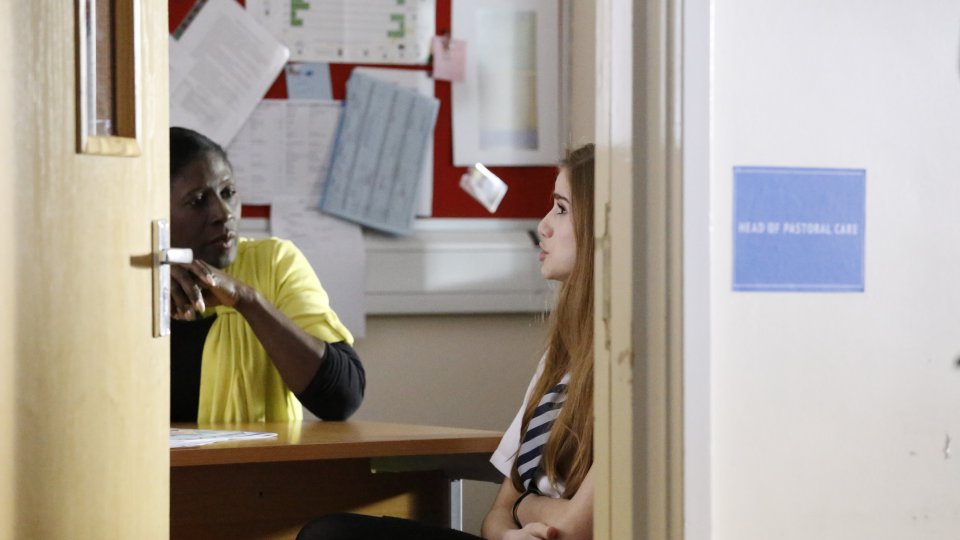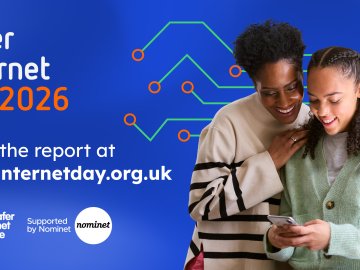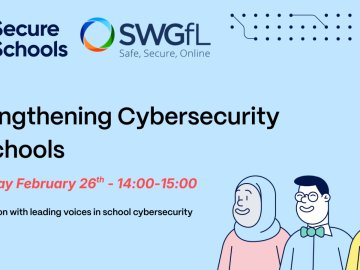As Safer Internet Day is fast approaching, Kathryn Tremlett from the Professionals Online Safety Helpline offers advice on what to do if a young person comes to you with an online safety concern.
Safer Internet Day is a great opportunity for teachers and professionals to have a conversation with their pupils about safe internet usage. As a direct impact of Safer Internet Day 2017 1 in 4 children aged 8-17 spoke to someone about something that had been worrying them online.
At the end of 2017, the findings from Europe-wide project deSHAME were published, revealing that young people face many barriers that can prevent them from speaking up about online sexual harassment. One statistic that stands out is 56% said they would be too embarrassed to seek help from a professional.
With this in mind, if you are a member of the children’s workforce it’s important that young people see you as someone they can approach. It can be daunting for both of you when you’re approached by a child concerned about online behaviour. Sometimes it can be difficult to relate, especially when it’s about technology you may not know a lot about.
In this blog the Professionals Online Safety Helpline (POSH) sets out what you need to remember if a young person comes to you with an online safety concern.
What to do
If a young person discloses a problem to you, here are our top tips:
Let them talk
The young person has come to you, give them the space to share what they want to in their way. Try to avoid the temptation to interrupt because you know what’s going on, prompt if necessary but let them do most of the talking.
Don’t make promises you can’t keep
The last thing a young person disclosing needs is promises about confidentiality which cannot be upheld. Make sure they know that you may need to talk to other people about the issue to help protect them from anything further happening.
Don’t be shocked by what they tell you
If there’s one sure way to put a young person off seeking help it’s making them feel embarrassed or ashamed about why they’re asking for help. Times change and some of the things young people do today may make us cringe sometimes, but the inherent behaviour is the same as it was when we were their age.
Trust your gut
If you have concerns, act now. Speak to the child, get support from their school and if you think they are at risk, contact the police. The National Crime Agency’s CEOP command has lots of advice at thinkuknow.co.uk
Remember your Duty of Care
All members of the children’s workforce have a responsibility to provide a duty of care for any young person they work with. Even if you’re not 100% sure whether other agencies need to be involved to help protect a young person, talk to your designated safeguarding officer. They may be better placed to help work out the next course of action.
Remember aftercare
All too often we hear about incidents where an issue has been resolved but following on from this a young person and/ or professional continues to struggle with the emotional trauma. They may not know where to go for help and pointing them in the right direction for emotional support is just as important as dealing with the incident itself.
If a child is in immediate danger
If you are concerned a young person is in immediate danger, call 999
Professionals Online Safety Helpline
POSH was set up in 2011 to provide support to all professionals working with children and young people. We work with teachers, social workers, doctors, police, coaches, foster carers, youth workers and many more.
The helpline provides free, independent, expert advice on all aspects of digital and online issues, such as: bullying, gaming, sexting, fraud, and grooming to name just a few. There are many reasons that people call the Posh Helpline; from worries about a young person who’s constantly glued to their device, to someone making a false allegation about their organisation. Whether you need support or just someone to talk an incident through with, the Professionals Online Safety Helpline is open Monday to Friday, between 10am-4pm.
Advice on what to do if you discover a young person has been groomed
Download our free educational resources and watch our films about Safer Internet Day 2018






